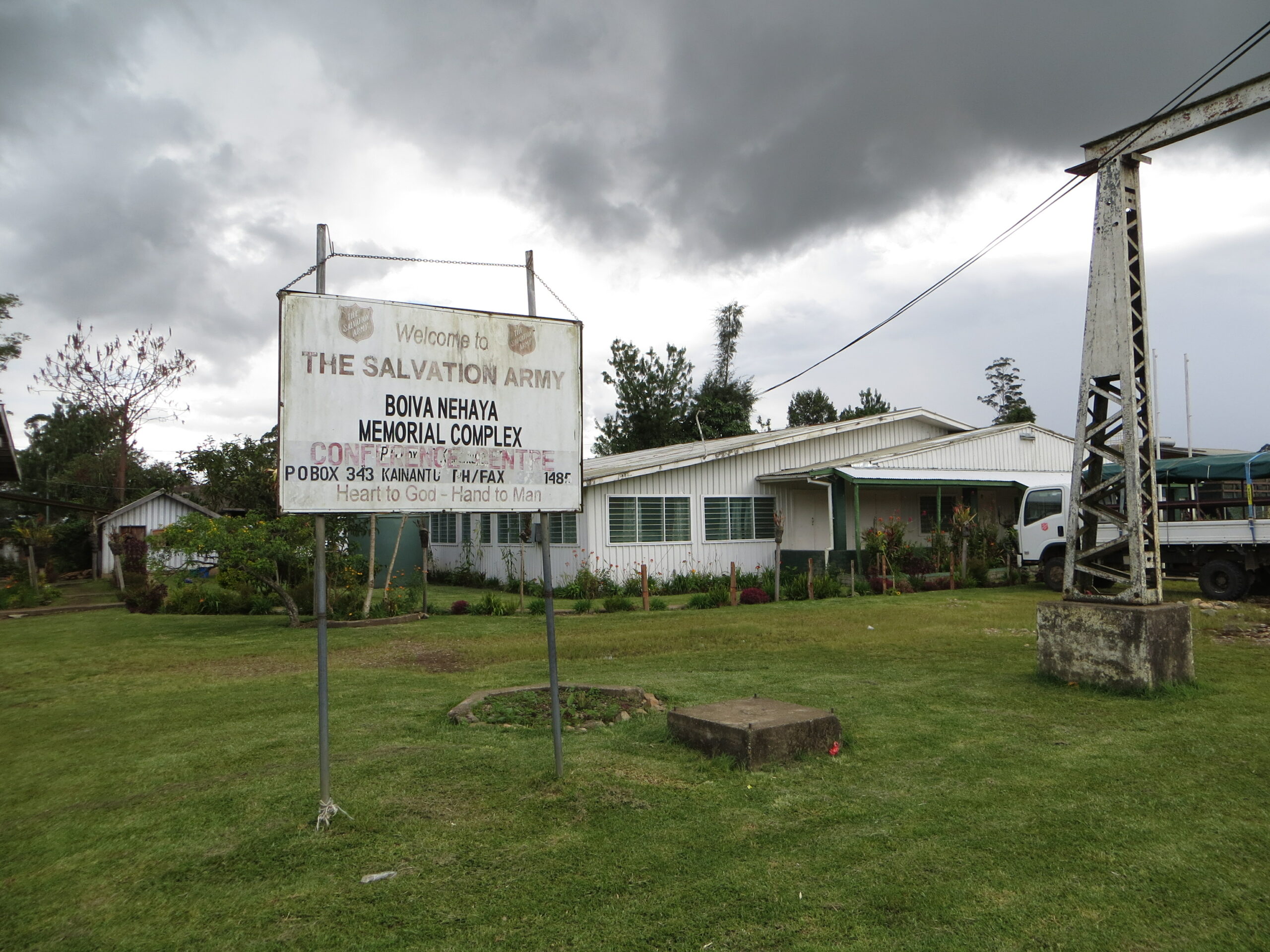Kainantu is the Divisional Headquarters for the North Eastern Division, and it sits on the main “highway” that leads from the port city of Lae on the northeast coast of PNG, up into the highlands on the other end of the highway at Goroka and beyond. The countryside is beautiful, and you might imagine water would not be a problem – but it is.
During a recent visit, Sandy and I had the opportunity to spend a couple of days on the DHQ compound as well as across town at the BNMC/CHWTS compound. (I know! It’s a mouthful, isn’t it?) This second compound has a “Meri Haus” for women recovering from violence, House of Hope for HIV patients, a large conference and training facility and the medical training school for community health workers. Doris, who runs the conference center and oversees the compound, gave us a tour of the facilities, and explained the difficulties regarding the water supply.
“We need more water tanks to store the rain,” Doris said. “But more than that, we need a bore hole and a pump.” Rain, though more frequent in the highlands, still does not provide enough sustainable water supply for those living, working and training on the compound. The medical school has dorms, classrooms and administration, and the conference center has meeting rooms, dining facilities and dormitory rooms too. Then there are several houses for staff and administrators of the facilities. More than 100 people live on the compound.
“When the dry season comes, we don’t have rain, and we run out (of water) because all of us are using it,” Doris said. “Sometimes we go four or five months without. But even in the dry season, one side of our compound is always green, so we’re thinking there must be water!”
The dream is to drill down to tap the water supply, install a pump, and then pipe the water to the tanks in order to supply all of the buildings on the compound.
Doris said that due to limited water, students at the school walk to the river to bathe and do laundry. The river is a 10-kilometer walk from the compound. Sometimes they carry containers with them to carry river water back for use on the compound. As a last resort, if the compound must purchase water, it costs K150 to truck in 500 liters. “That lasts one day,” Doris said.
_____________________________
May this account of great need in Papua New Guinea inspire you and your women’s groups as we fund raise on their behalf. Read other accounts here and here.
